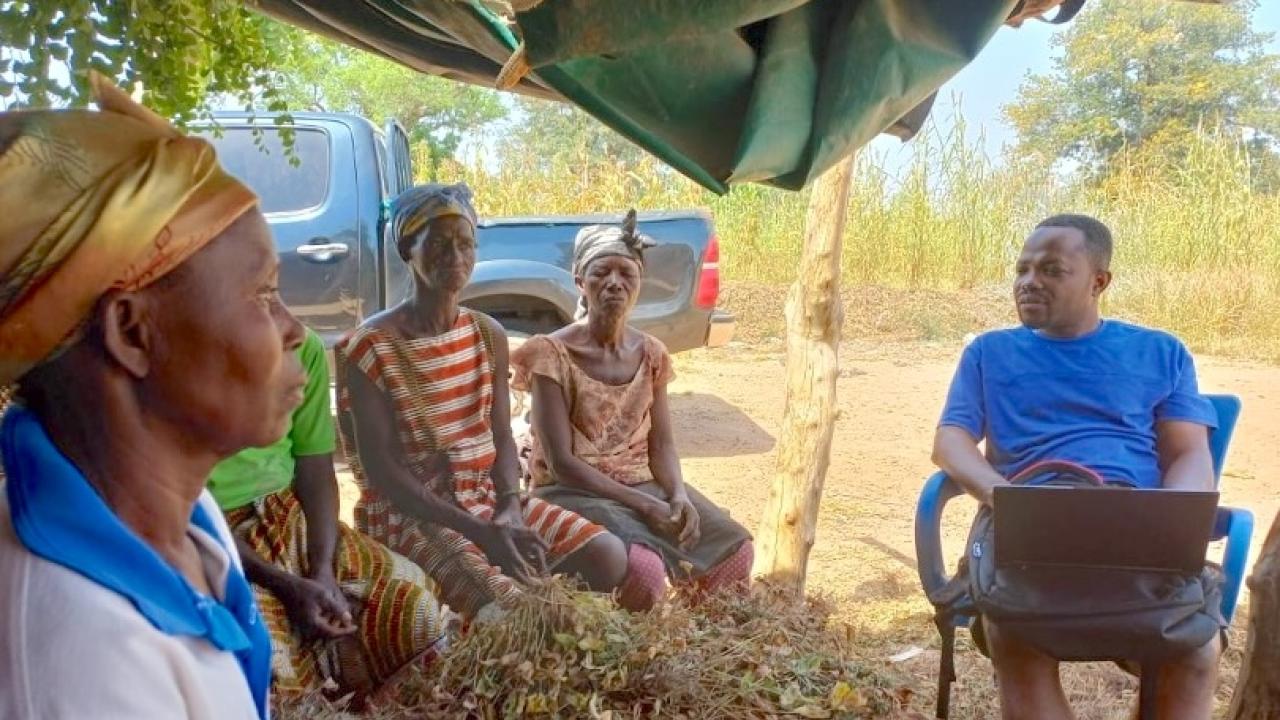
ALL-IN Researcher Receives Gates Foundation Funding to Continue Building Market Solutions for Rural Women
Given the complexities of market systems, it’s no surprise when researchers uncover new obstacles and opportunities over the course of their work. Often, limitations in study parameters, time, and funds prevent researchers from addressing these new issues. But sometimes, circumstances align to allow researchers to test new solutions.
In the case of ALL-IN Principal Investigator, Fred Dzanku, on-the-ground partnerships and an interested donor have allowed him to build on his MRR-funded project, Reducing Poverty among Women by Strengthening the Shea Value Chain in Northern Ghana. Dzanku’s team has received new funds to pursue new solutions to strengthen women’s economic success in northern Ghana.
Supporting Women Shea Producers
Since 2021, Fred Dzanku’s team at the University of Ghana has been researching constraints to increased returns to women producers in the shea value chain. Specifically, their randomized controlled trial (RCT) in northern Ghana tested whether credit contracts—a loan, which in this case is to be repaid shea kernels—enables shea farmers to hold onto their harvest longer, storing it until market prices are higher and they can reap increased revenue with their sale. Results from the trial will be published in the coming months, but initial analysis indicates that the credit contracts had a positive impact.
META Foundation, a Ghanaian NGO, was an implementation partner. During the project, Dzanku and META Foundation observed that rural and community banks were struggling with the time and expense spent on conducting in-person transactions for loan disbursement and repayment, across hundreds of communities. Additionally, some agents were diverting some of the loan funds due to the women to other purposes.
Turning Attention to Financial Transactions
META’s director, who is a member of Naara Rural Bank, worked with the bank’s leadership to explore how they could make it easier for the bank to transact with rural borrowers. The bank agreed to try a vendor platform for accepting mobile money payments.
The initiative found support through Retail Finance Distribution (ReFinD), a Gates Foundation-funded research initiative that supports testing innovations in retail finance in order to deepen digital financial inclusion for underserved populations. ReFinD agreed to finance a pilot, which would set up Naara Rural Bank on a digital platform and encourage a sample of women’s solidarity groups to use mobile money.
The pilot intervention had promising results, with a 15-percentage point increase of mobile money uptake among solidarity groups encouraged to use mobile money (relative to the control group mean of 2%).
Building on the successful pilot, ReFinD invited Dzanku’s team to submit a proposal for a full-scale RCT. The team is designing the RCT to measure the impact of interventions to mitigate key constraints to women’s mobile money adoption—transaction fees and limited digital literacy and trust.
ALL-IN as a Springboard
Reflecting on this evolving work, Dzanku remarks, “This narrative shows how the ALL-IN initiative could be self-sustaining through collaborations that arise from the ‘lab-in-the-field.’ The ideas for the ReFinD pilot and potential scale-up were born out of discussing solutions to problems encountered in conducting the ALL-IN RCT, specifically, the problem where the full amount of credit did not reach some of the women because some agents diverted the credit.”
